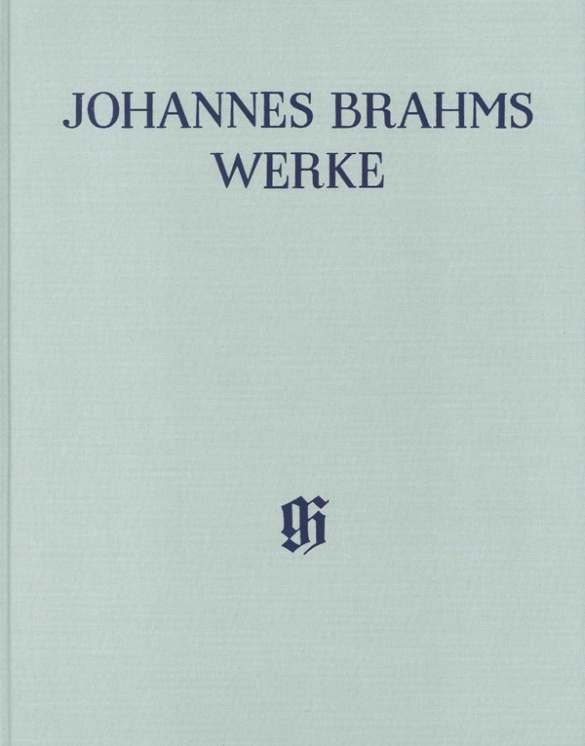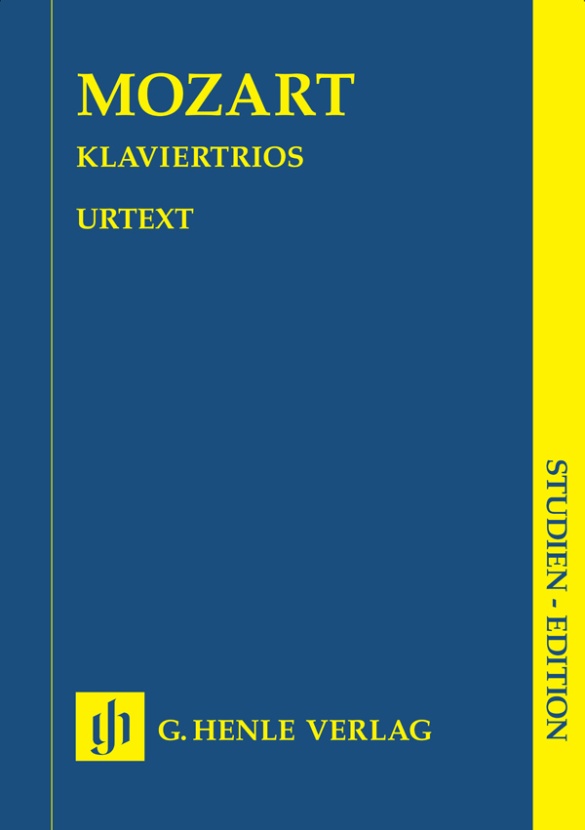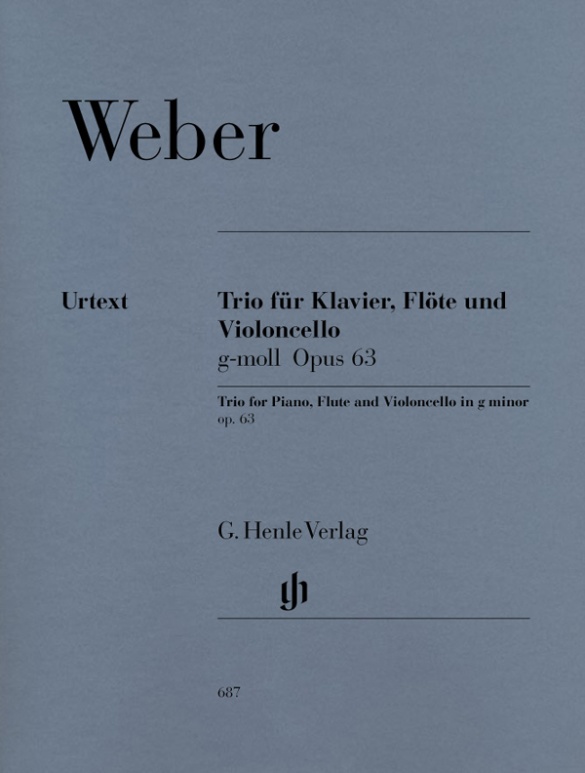

Carl Maria von Weber
Trio g minor op. 63 for Piano, Flute and Violoncello
Content/Details
About the Composer
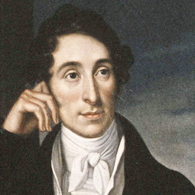
Carl Maria von Weber
One of the most important German opera composers before Wagner, he advocated for a German opera through his own output and in his writings. His fame is predicated on “Der Freischütz,” which was received emphatically as a German nationalist opera. His instrumental works (orchestral pieces, solo concerti, chamber music, piano works) are largely based on Classical models though already anticipate the Romantic sound.
| 1786 | Born in Eutin on November 18 or 19. Journeyman years with the “Webersche Schauspielergesellschaft,” a wandering acting troupe. He plays smaller roles for children. |
| 1797 | The troupe comes to Salzburg, where he studies composition with Michael Haydn from 1798. |
| 1800 | Premiere in Freiberg of his first Romantic, comic opera, “Das Waldmädchen” (“The Forest Maiden”). |
| beginning 1803 | Years of study in Vienna with Georg Josef Vogler. |
| 1804–06 | First appointment as music director in Breslau (Wrocław). |
| 1810 | Premiere in Frankfurt am Main of the Romantic opera “Silvana.” Piano Concerto No. 1 in C major, Op. 11. |
| 1811 | Clarinet Concerti No. 1 in F minor, Op. 73, and No. 2 in E-flat major, Op. 74, commissioned by Maximilian of Bavaria; in 1812, Piano Concerto No. 2 in E-flat major, Op. 32. |
| 1813–16 | Opera director and music director of the Estates Theater in Prague. From 1817 onward,courtl music director in Dresden. |
| 1819 | Piano pieces: “Rondo brillante” in E-flat major, Op. 62; “Aufforderung zum Tanze” (“Invitation to the Dance”) in D-flat major, Op. 65; “Polacca brillante” in E-flat major, Op. 72. Trio in G minor for piano, flute, and cello, Op. 63. |
| 1821 | Premiere in Berlin of his Romantic opera “Der Freischütz,” Op. 77; it is received as an archetypal German opera due to its subject matter and music, although it integrates German, French, and Italian elements. Konzertstück in F minor for Piano and Orchestra, Op. 79, which paves the way for one-movement concerto compositions in the nineteenth century. |
| 1823 | Premiere in Vienna of “Euryanthe,” Op. 81. |
| 1826 | Premiere in London of “Oberon.” Death in London on June 5. |
About the Authors
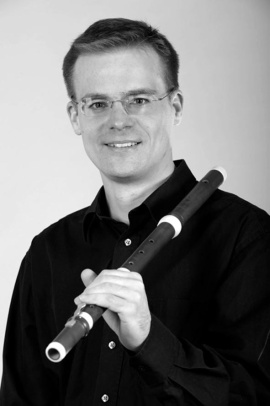
Henrik Wiese (Editor)
Henrik Wiese was born in 1971 in Vienna. He first studied the flute with Paul Meisen (Munich). He later took a degree in Indo-European studies, general linguistics and musicology. From 1995 to 2006 he was solo flautist at the Bavarian State Opera (Munich), since 2006 he has held the same position with the Bavarian Radio Symphony Orchestra. Wiese was a prize-winner at the German Music Competition (1995) and at several international flute competitions (including the ARD Music Competition in 2000).
As part of his editorial work for G. Henle Publishers, studying sources led him to historical performance practice and the transverse flute. He plays this instrument with the Accademia giocosa. Wiese gives master-classes around the world and tries to impart an understanding of how to deal with editions and sources to his pupils, to show them how to write cadenzas and to hone their awareness of intonation. His artistic work as a soloist, chamber musician and orchestral musician has been documented on numerous CDs.

Klaus Schilde (Fingering Piano)
Prof. Klaus Schilde, born in 1926, spent his childhood in Dresden. There he was greatly influenced by Walter Engel, who taught him the piano (Kodaly method), composition and violin. From 1946–1948 he studied at the music conservatory in Leipzig with Hugo Steurer. After moving to the west in 1952 he studied with Walter Gieseking and Edwin Fischer, as well as with Marguerite Long, Lucette Descaves and Nadia Boulanger in Paris.
Schilde won numerous prizes. From 1947 onwards he gave concerts as a soloist and chamber musician on almost every single continent with renowned orchestras. He taught at the music conservatories in East Berlin Detmold, West Berlin, Munich, Tokyo (Geidai) and Weimar. From 1988–1991 he was President of the Staatliche Hochschule für Musik und Theater in Munich, where he also taught for decades as a professor. There are numerous radio and television broadcasts with Klaus Schilde as well as CD recordings. Schilde has contributed fingerings to almost 100 Henle Urtext editions.
Prof. Klaus Schilde passed away on 10 December, 2020.
Product Safety Informations (GPSR)

G. Henle Verlag
Here you can find the information about the manufacturer of the product.G. Henle Verlag e.K.
Forstenrieder Allee 122
81476 München
Germany
info@henle.de
www.henle.com
... The current edition is based on both the original autograph and the first published edition with any editorial decisions being clearly highlighted in the commentary.
Sheet MusicLa publication d'une œuvre maîtresse du répertoire de musique de chambre avec flûte par un éditeur réputé pour sa qualité est un événement. ... Les éditions Henle reprennent la version autographe sans autres commentaires que ceux exhaustifs, placés en fin de volume. Elles proposent cependant quelques ajouts, clairement indiqués entre parenthèse, et tiennent compte de l'habitude du compositeur de noter différemment un motif cité plusieurs fois. La présentation, la mise en page, l'impression, la préface sont soignées. Une version de référence.
La TraversièreDe uitgave is op en top Henle: een rustig notenbeeld, een uitgebreid historisch voorwoord en gedegen commentaar met verwijzignen naar de verschillende geraadpleegde bronnen.
PianowereldThis Henle edition, edited by Henrik Wiese with piano fingering by Klaus Schilde, is a fine one for experienced or professional players.
American String Teacherrecommendations
autogenerated_cross_selling


